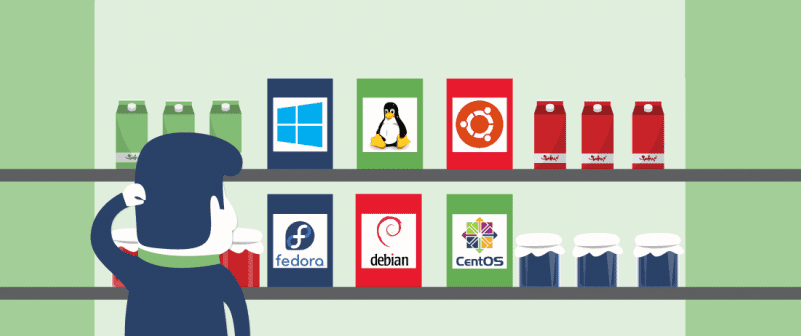The question in the title of this article has already taken many peoples’ sleep. When deciding to publish a website, it is common to come across this and many other doubts. Doubts that seem to increase whenever it is necessary to make a new decision related to the project.
What tool should I use to create my website? What is the best hosting? Which operating system should I choose? These are just a few examples of the kind of decision that needs to be made during the journey of creating and publishing a website.
If you have identified with the above, do not despair! You are not alone in the quest for these answers. As we’ll see in this article, choosing the operating system for your web hosting is easier than you think. Stay with us and find out!
Choose the platform that will be used on your site
Just like the programs installed on our computer, site creation platforms also have compatibility with specific hosting features. For example, if your application is built in PHP, you will need an operating system that is compatible with PHP. Because it is a very popular programming language, there is a multitude of language-compatible operating systems, including Linux and Windows servers.
Other languages, however, are not so compatible. This is the case with the ASP language, which is only compatible with Windows hosting servers. So, knowing your application and knowing the necessary requirements for it to work, we can know which operating system will be most appropriate.
Warning: Your computer’s operating system has nothing to do with the operating system of your hosting. You can perfectly have a computer running Windows and host your website on a Linux server.
Choose the most appropriate operating system
As we’ve seen, when deciding on the platform, you’re one step closer to having the answer about which operating system to choose for your hosting. Check the prerequisites for the application or system you want to use and you will be able to choose the operating system for your hosting.
The most popular operating system on hosting servers is Linux, which is present on more than half of all Internet servers in the world. Linux is found in several distributions, which are versions based on the central Linux source code (called the Kernel), but adapted for a specific purpose. Among the hosting servers, it is common to find the Linux distributions CentOS, Debian and Ubuntu Server.
By hiring the service of web hosting if you do not choose a specific operating system, there are great chances of it being based on Linux. Most internet languages are compatible with Linux servers, so this should not be a problem. However, depending on the type of application you want to use, you should choose a specific type of operating system that is best suited for your application.
Languages versus operating systems in website hosting
To help you with your choice, refer to the table below, which contains the most popular markup and programming languages on the internet, and their compatibility.
You may not need to choose an operating system for your hosting. In some situations, you will not have to go through the decision making to choose an operating system for your hosting. This is especially true when creating a site through a site creator service, such as Wix and WordPress.com. Hosting systems that offer content management systems (CMS) previously installed, such as a hosting for WordPress, also fit here.
When hiring a service like this, the hosting is already configured with the necessary environment for the service to work and therefore the appropriate operating system has already been chosen by the company that provides the service.
But do not forget, before you start!
Before you think about which operating system you choose, you need to keep in mind what your website’s goals are and what kind of presence you want to create on the internet. Do you want to create a blog? A portfolio site to showcase your work? Or just a simple professional website, to serve as a business card?
There are currently a myriad of tools and platforms for creating websites. If you have not yet picked one, you will need to do this before you put your hand in the dough. In a simplified way, we can consider the steps below:
- Define the type of site you want to create (e.g., blog, website, virtual store, etc.).
- Choose the platform that will be used for site creation (e.g., site creator, WordPress, etc.).
Let’s suppose you want to create a blog. This choice already reduces the number of tools available for this purpose, which is great considering the immensity of available systems. You can then select the most popular or the ones that you like, and choose only one of them for your blog.
By going through these two steps, you will probably already have an indication about which operating system to choose from in your hosting, as seen throughout this article.
Conclusion
The choice of operating system of a web hosting should not be a difficult task. Once you know the type of site/application you want to use, the most appropriate operating system will probably be required by the application itself. In addition, most of the languages used on the Internet are compatible with the major operating systems available on the market.
It is also worth remembering that in services that use a tool like the rental as a model, the operating system does not have to be chosen. In this case, this decision has already been made by the company that hosts the site.
Do you have any questions? Leave a comment and we will be happy to help you!








